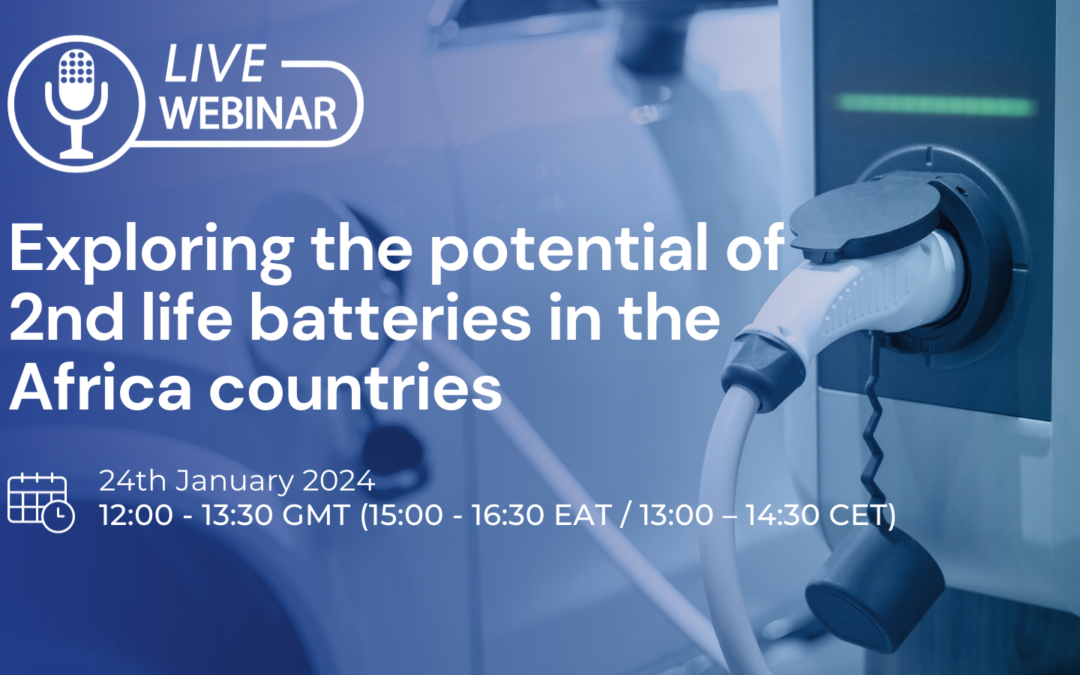Webinar overview
The use of batteries has been gaining traction across the world for battery electric vehicles (BEVs) and in other applications. Battery usage aims to reduce the GHG emissions and boost the adoption of clean energy technologies globally. In general, the lifetime of batteries is approximately 10 years, depending upon its application and usage, after which these are disposed. However, disposed batteries still have the capacity to be repurposed and utilised in other applications that can accomodate the lower efficiencies of the second-life batteries and, inturn, save costs. Thus, the usage of second-life batteries helps increase the lifespan and prevent early disposal. In the African context, battery-based applications are comparatively newer. This provides an opportunity to explore the potential of second-life batteries in various applications including electrification, energy storage, etc., and explore how new businesses can be created around recycling and repurposing the second-life batteries, taking into account the existing and upcoming regulations in the African countries. In this webinar, the speakers will present some of the activities being undertaken in the SESA project on the topic of second-life batteries. In addition, the webinar will also host speakers (entrepreneurs, industry players, representatives from local bodies, etc.) from outside the SESA project consortium to discuss businesses and policies in the African context. This webinar is part of the fifth module of the SESA capacity building programme, a self-paced e-learning programme which focuses on the second-life batteries. The courses are available on the NUA campus platform.




Recent Comments